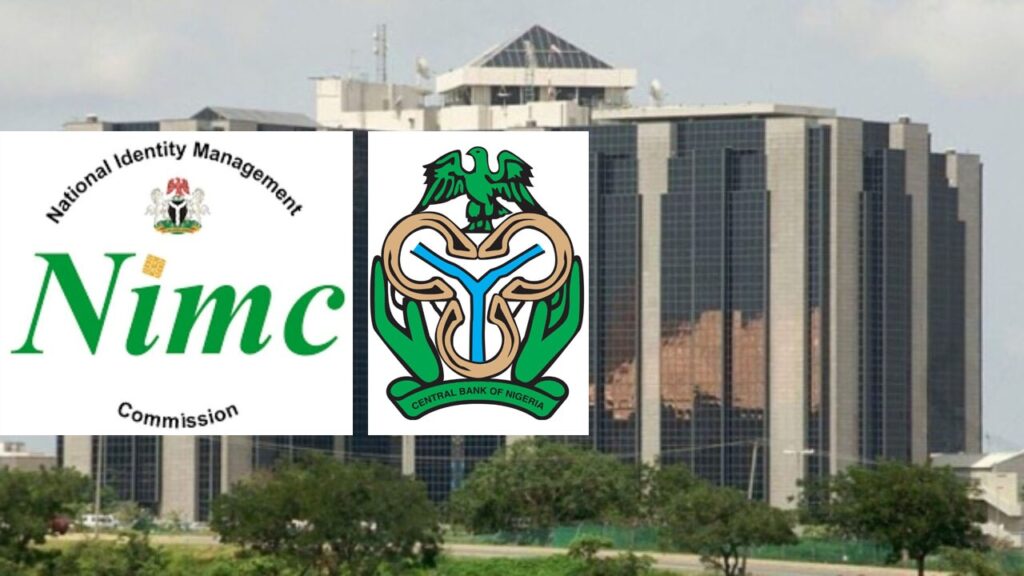Extend BVN/NIN linkage deadline
Tens of millions of Nigerian bank customers are at risk of losing access to their accounts if the Central Bank of Nigeria (CBN) implements its directive on restricting accounts without the Bank Verification Numbers/National Identification Numbers (BNV/NIN). On December 1, 2023, the CBN directed that a ‘Post No Debit’ restriction be put on all bank […]

bvn nin
Tens of millions of Nigerian bank customers are at risk of losing access to their accounts if the Central Bank of Nigeria (CBN) implements its directive on restricting accounts without the Bank Verification Numbers/National Identification Numbers (BNV/NIN).
On December 1, 2023, the CBN directed that a ‘Post No Debit’ restriction be put on all bank accounts without BVN/NIN linkage effective Friday, March 1, 2024. This means that affected customers will not make withdrawals, transfers, or any other debits from their accounts.
The federal government had earlier, in December 2020, at the height of the COVID-19 pandemic, with its travel restrictions, mandated telecommunications subscribers to link their SIMs with their NINs.
According to data from Statista, as of 2021, the number of active bank accounts in the country was around 133.5 million, with savings accounts making up about 120 million. Data from the Nigeria Inter-Bank Settlement System (NIBSS) shows that as of January 10, 2024, 60.2 million individuals were owners of the 133.5 million bank accounts.
- Borno expands drip irrigation for food sufficiency, export
- Varsity unions’ strike: Exams stalled in BUK, lectures disrupted in others
Also, the latest NIBSS BVN registration data update showed that the number of registered BVN stands at 58.7 million as at September 12, 2023.
In the same vein, the number of Nigerians with NIN rose to 104.16 million as at the end of December, 2023, a 10.77 per cent increase from the 94.03 million recorded as at the end of December 2022, by the National Identity Management Commission (NIMC).
This shows the gaps that need to be filled in so short a time. While the Nigerian Communications Commission (NCC) ruled out any possibility of extending the deadline and “directed all telecommunication operators to bar phone lines of subscribers whose lines are not linked to their NINs on or before February 28, 2024,” it is heartening that the banks have been trying to create a seamless linking process to avoid accounts deactivation. However, the process is slow.
Ordinarily, this is a good policy towards having a more transparent banking sector and improving banks’ Know Your Customer (KYC) requirements. It would also help to stem the increasing security challenges as all telecom and bank users must have verifiable identities linked to their bank accounts and phone lines.
Yet, the implementation process is worrisome. The policy’s good intentions are being clouded by the fear and anxiety being expressed by Nigerians because of a hasty deadline. In addition, the policy did not take into account Nigerians in Diaspora as the process has not made adequate provisions for those with remote access to their funds.
The banks have opted for both physical and online linkage. While some banks sent out messages to their customers to update their accounts in line with the new CBN directive, some asked customers to visit their physical branches. Others made provisions for customers to update their accounts online.
Based on the stress Nigerians are going through, the Association of Telephone, Cable TV and Internet Subscribers of Nigeria (ATCIS-Nigeria) has requested a 90-day extension of the BVN-NIN linkage exercise. ATCIS-Nigeria national president, Sina Bilesanmi, urged the CBN to extend the deadline in order not to compound citizens’ plight with the rigorous process involved in linking their accounts. He expressed concerns over the stress account holders are dealing with just to link BVN/NIN to their accounts, considering the bad network situation in the country.
We ask: What happens to the about 300 Local Government Areas (LGAs) out of the 774 in Nigeria that have no bank branches? What of the LGAs with regular network failure in their banks?
As much as we agree that the linkage is necessary, Daily Trust calls for a phased implementation of the policy. There is a need to address the issue of poor network in parts of the country and even the absence of physical banks in some areas. Nigerians should do this without pressure or stress. We do not want a repeat of the scenario witnessed when government issued deadline for NIN acquisition. There is no need for crowds at banks because, due to poor network, many Nigerians will have to visit banks and there will be queues, yet these citizens have to also report at their places of work. Not all policies must be followed with deadlines. Maybe efforts should be made instead to convince Nigerians on the need to link their data and the benefits therein.
We join ATCIS-Nigeria to demand an extension of the BVN/NIN linkage policy to individual and corporate accounts. After all, the publicity for this project has been poor. It is time things are done in an orderly manner. The era of herding Nigerians together in banking halls under matching orders should be a thing of the past. Certain things are supposed to be done as a matter of banking routine. This linkage should be one of them.
